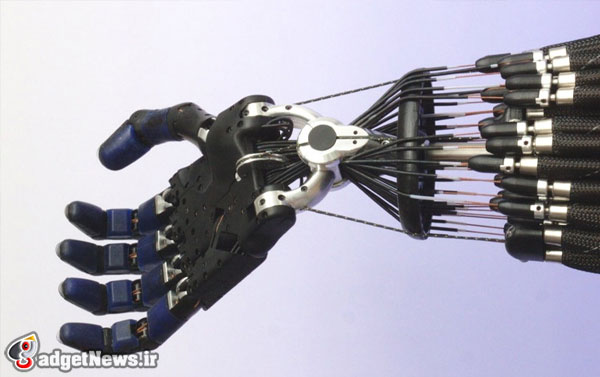
شماری از دانشمندان در دانشگاه برکلی به فناوری ساخت نوعی ماهیچهی مصنوعی دستیافتهاند، که با استفاده از میکرو ماهیچههای تعبیه شده در آن، قادر است تا نیرویی 1,000 برابر ماهیچههای موجود در بدن انسان را تامین کند.
تیم تحقیقاتی در آزمایشگاه برکلی با کمک ترکیبی از وندیوم دیاکسید قادر به ساخت یک میکرو ماهیچه شدهاند که میتواند در دمای 67 درجه خاصیت رسانایی خود را تغییر داده و از یک مادهی عایق به رسانا تبدیل شود. این امکان موجب میشود تا ترکیب مورد استفاده سریعا واکنش نشان داده و همچون ماهیچهی معمولی منقبض شود. این میکرو ماهیچه نتایج درخشانی را در آزمایشهای انجام شده بر جای گذاشته است. برای مثال این ماهیچه قادر است تا اشیائی 50 برابر سنگینتر از وزن خود و 5 برابر بلندتر از طول خود را در زمانی کمتر از 60 میلی ثانیه بلند کند.
ماهیچهی تولید شده در صورت قرار گرفتن در معرض حرارت مستقیم به سرعت واکنش نشان میدهد تا این امکان را برای دانشمندان فراهم میکند که در زمان مشخصی یک میکرو ماهیچهی خاص را فعال کنند. محققان اعتقاد دارند که میتوان از این میکرو ماهیچهها که با استفاده از وندیوم دیاکسید ساخته شدهاند، در آیندهای نزدیک ساخت سیستمهای ماهیچهای عصبی مصنوعی را ممکن کند. پ
این ماهیچهها قدرت تحمل وزن بالا را داشته و همچنین قادرند در محل کوچکی با قابلیت انعطاف پذیری بالا، انرژی کمی مصرف کنند.
منبع : gigaom
Researchers create super-strong robotic muscle
Are you ready for bionic super-strength? Scientists have made a breakthrough in artificial muscles.
A team of scientists at UC Berkeley have made a breakthrough in artificial muscle technology, creating a micro-muscle that can can create up to 1000 times the strength of regular humans, according to the lab.
The team at Berkeley Lab was able to create the tiny system with the aid of a compound called vanadium dioxide, which rapidly changes from an insulator to a conductive metal at 67 degrees. In making its transition, the compound rapidly contracts, making it possible to mimic a muscle in torsion. The artificial micro-muscle performed impressively in tests, able to propel objects up to 50 times heavier than itself more than five times its length within just 60 milliseconds.
The muscle itself responds best to direct heating, which lets scientists select which micro-muscle system to activate at any one time. Researchers at the lab believe that this selectiveness could, in time, make vanadium dioxide the key to creating an artificial neuromuscular system, creating muscle-like motors that can support weight and are flexible enough to perform in small spaces on low energy.
 گجت نیوز آخرین اخبار تکنولوژی، علم و خودرو
گجت نیوز آخرین اخبار تکنولوژی، علم و خودرو 




